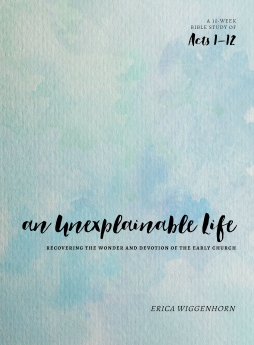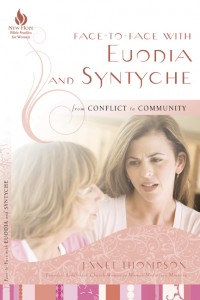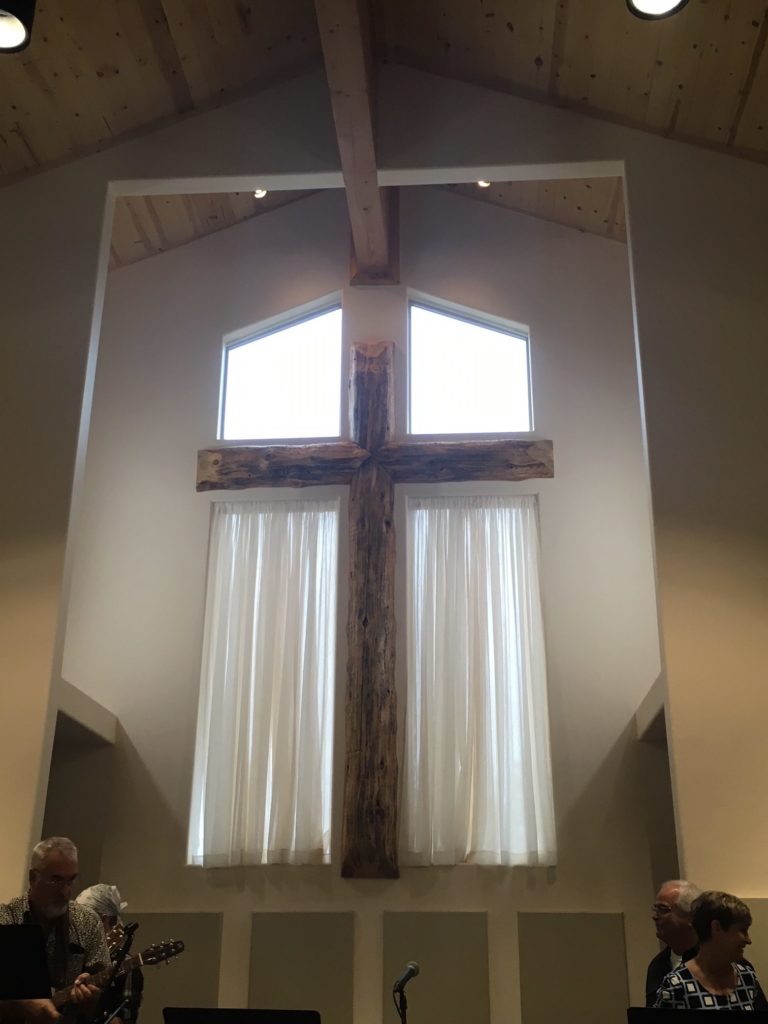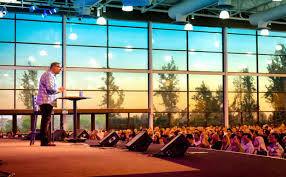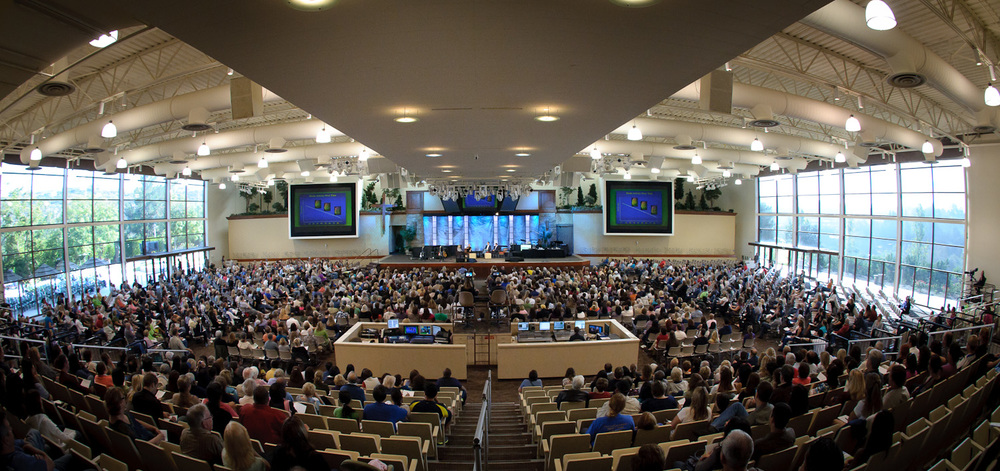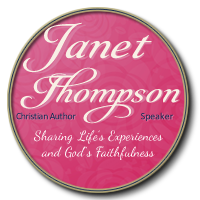
Today, many are calling it a “moral obligation” to warn us about climate change before it “kills us.” But these are some of the same people who advocate legalizing immoral change destroying our country. They have no concern for killing babies, every second of every day; in fact, they champion it, but stop eating hamburgers now! That’s their real concern.
[Tweet “When’s the last time you heard a pastor speak on Romans 1:18-32 and speak about the truths of God’s anger toward sin?”]
Our pastor recently spoke on Romans 1:18-32. When’s the last time you heard a pastor speak about the truths of God’s anger toward sin, many of which our culture idolizes and tries to force on us as “tolerant” and acceptable. God is never tolerant or acceptant of sin. Never! I put a link to these verses because I want you to go read them and then think about the moral change happening in our country today.
You can’t study the great Book of Romans without addressing these verses, and yet many churches, pastors, and Christians are not only ignoring them, they’re trying to whitewash them out of the Bible. God’s Words ignored because the world tells us they’re irrelevant and don’t actually apply to a 21st Century culture or even worse that they’re “hate speech!”
[Tweet “God’s Words ignored because the world tells us they’re irrelevant and don’t actually apply to a 21st Century culture or even worse that they’re “hate speech!””]
Many have applauded my last few blogs, and others have said I’m preaching to the choir. Well that’s exactly who I want to reach. I want the “choir” to get out of their safe pews, take off their protective, comfy choir robes, move out of the safety of like-minded people groups, and take a stand for God’s Words and God’s ways before moral change completely envelops our country.
[Tweet “Today the biggest problem facing America is how humans are redefining morality not how humans are changing the climate.”]
Today the biggest problem facing America is how humans are redefining morality, not how humans are changing the climate.
In my blog, 5 Examples of How to Join God in Bringing Good out of Evil, I made the point that everyone knows right from wrong and has a conscience. People who are doing wrong, know that it’s wrong, but they do it anyway for any variety of reasons: greed, power, social pressure, self-gratification.
[Tweet “People who are doing wrong, know that it’s wrong, but they do it anyway for any variety of reasons: greed, power, social pressure, self-gratification.”]
Romans 1:18-23 (NLT) reminds us that every living human being has to acknowledge God. Even those who are so worried about the climate change are looking at the air they breathe, the forests, the water, the animals . . . and so: 19 “They know the truth about God because he has made it obvious to them. 20 Forever since the world was created, people have seen the earth and sky. Through everything God made, they can clearly see his invisible qualities—his eternal power and divine nature. So they have no excuse for not knowing God.
Yes, they knew God, but they wouldn’t worship him as God or even give him thanks. And they began to think up foolish ideas of what God was like. As a result, their minds became dark and confused. 22 Claiming to be wise, they instead became utter fools. 23 And instead of worshiping the glorious, ever-living God, they worshiped idols made to look like mere people and birds and animals and reptiles.”
So anyone who doesn’t acknowledge God and his ways, leaves himself or herself wide open for Satan to take hold of their mind, will, and actions. They become dark and confused . . . “utter fools” . . . which aptly describes many of the secular population.
[Tweet “Anyone who doesn’t acknowledge God and his ways, leaves himself or herself wide open for Satan to take hold of their mind, will, and actions. They become dark and confused.”]
And don’t we see a flood of dark, confused, “foolish ideas” today. We’re baffled how adults can actually champion with a straight face the absurdity of “the new green deal” with no cows, no planes only trains, every building in America rebuilt and on and on…and if you don’t get on board you’re going to die in 12 years, which was also predicted in 1989, 1999, and will still be “12 years” in 10 years from now! Foolish!
Or foolish talk of Socialism for America. Or defending and lying about an illegal coup to take down a duly elected president. Or an actor who gets away with a sloppy contrived hate hoax. Or rich parents thinking they’ll never get caught cheating their children’s way into college. Foolish! Dark!
[Tweet “How deceived the churches, denominations, pastors, and Christian speakers/authors who are foolishly ignoring Romans 1:24-32 and trying to convince us that these sins aren’t really sin”]
But what about the foolish confused churches, denominations, pastors, and Christian speakers/authors who are foolishly ignoring Romans 1:24-32 and trying to convince us that these sins aren’t really sin. I just read an article “French bishops spokesman calls homosexual relationships ‘something of God’. Here’s what God’s something says about it:
24 So God abandoned them to do whatever shameful things their hearts desired. As a result, they did vile and degrading things with each other’s bodies. 25 They traded the truth about God for a lie. So they worshiped and served the things God created instead of the Creator himself, who is worthy of eternal praise! Amen. 26 That is why God abandoned them to their shameful desires. Even the women turned against the natural way to have sex and instead indulged in sex with each other. 27 And the men, instead of having normal sexual relations with women, burned with lust for each other. Men did shameful things with other men, and as a result of this sin, they suffered within themselves the penalty they deserved.
Since they thought it foolish to acknowledge God [and the way he created them sexually] he abandoned them to their foolish thinking and let them do things that should never be done. 29 Their lives became full of every kind of wickedness, sin, greed, hate, envy, murder, quarreling, deception, malicious behavior, and gossip. 30 They are backstabbers, haters of God, insolent, proud, and boastful. They invent new ways of sinning, and they disobey their parents. 31 They refuse to understand, break their promises, are heartless, and have no mercy. . . .Worse yet, they encourage others to do them, too. Romans 1:24-32 NLT
So what are we to take from these verses that describe the same world today that Paul described in Rome? And almost every family today has one of these issues described in the above verses. God says he doesn’t release people to sin, but if they won’t listen to him, he does withdraw his loving restraint. (Romans 1:24) Like so many claim today, they do have a choice and a right to do what they want, and God will let them make that choice, but He’ll also let them suffer the consequences.
[Tweet “Like so many claim today, everyone has a choice and a right to do what they want, and God will let them make that choice but He’ll also let them suffer the consequences.”]
So does that mean we should give up on them? Absolutely not! But it does mean that we don’t get caught up endorsing what God calls wicked by redefining sin. That’s not helping them. If we say that because we love someone it means their sin is Okay, we’re essentially giving up on them and their eternal salvation.
[Tweet “If we say that because we love someone it means their sin is Okay, we’re essentially giving up on them and their eternal salvation.”]
C.S. Lewis summed it up this way: “There are only two kinds of people in the end: those who say to God, ‘Thy will be done’ and those to whom God says, in the end, ‘Thy will be done.’ All that are in Hell, choose it. Without that self-choice there could be no Hell.”
I would add that all who are in Heaven choose it too.
Climate change is nothing compared to eternity in Hell. That’s what kept me on my knees praying for my daughter, and I hope there’s someone you’re staying on your knees for too. Because if you’re truly a Christian, you know that Heaven and Hell are real. Pastor Greg Laurie recently wrote a devotional where he said:
“I want to do everything I can to warn everyone I know so they won’t end up in that horrible place. Tell them about what Christ has done for you. Tell them about the hope of Heaven. Tell them about the forgiveness of sin. And tell them what the repercussions are if they don’t believe. Don’t leave that out. Don’t dilute it. We have the hope of Heaven, but we don’t want anyone to go to Hell.”
But let’s make that clear. “You don’t get to Heaven by living a good life. And you don’t end up in Hell by living a bad life. Heaven is not for good people; Heaven is for forgiven people. Everyone who turns from their sin can go to Heaven. This is why God sent His Son, Jesus, to die for us on the cross.”
[Tweet “We’re not helping or showing love to anyone when we condone their sin. And much of what the world endorses, God condemns. “]
This is why we celebrate Easter. This is the message churches should be sharing. We’re not helping or showing love to anyone when we condone their sin. And much of what the world endorses, God condemns. And so should we. When immoral evil is condoned and legalized, as Christians we don’t tolerate it or obey it. We fight it with everything we have in us.
O.S. Hawkins says in his book The Believer’s Code: “Yet the Bible gives clear instructions: we are compelled to disobey civil law when it is in direct opposition to God’s laws.”
[Tweet “Today, you will be called all sorts of horrible names when you don’t go along with immoral laws. But so what?”]
Today, you will be called all sorts of horrible names when you don’t go along with immoral laws. But so what? Jesus said: “Remember what I told you: ‘A servant is not greater than his master.’ If they persecuted me, they will persecute you also. If they obeyed my teaching, they will obey yours also” (John 15:20).
If we offend with the Gospel, then Glory be to God. Hardships and persecution are all part of a life devoted to Christ.
[Tweet “If we offend with the Gospel, then Glory be to God. Hardships and persecution are all part of a life devoted to Christ.”]
Don’t shy away from calling sin a sin. Even in our own lives. We sin too. Hopefully, not in the ways described in Romans 1:18-32, but in other ways unpleasing to God.
[Tweet “Don’t feel like you have to defend God. He can defend himself. He’s made his presence known to everyone, some just choose to ignore him”]
Don’t feel like you have to defend God. He can defend himself. He’s made his presence known to everyone, some just choose to ignore him. But God is always good in His invitation: His call to everyone is to repent and be saved. Not saved from climate change, but from moral change.
[Tweet “But God is always good in His invitation: His call to everyone is to repent and be saved. Not saved from climate change, but from moral change.”]
John 3:18 says, “Whoever believes in him is not condemned, but whoever does not believe stands condemned already because they have not believed in the name of God’s one and only Son.”
It’s not just that someone is a sinner; it’s that he or she rejected God’s solution to moral change in his or her own life.
“God is saying, ‘I love you. I don’t want you to go to Hell. I put My own wrath on my Son, whom I love, so you can be forgiven.’ That rejection of Jesus is what brings judgment. It isn’t going to be a sin question in the final day. It’s going to be a Son question: What did you do with Jesus?” Pastor Greg Laurie
[Tweet “The most loving thing you can do as a church and as Christians is to not give up on someone you know who has rejected Jesus. Climate change is nothing compared to an eternity separated from God.”]
The most loving thing you can do as a church and as a Christian is to not give up on someone you know who has rejected Jesus. Climate change is nothing compared to an eternity separated from God.
If you received this blog by email, please leave a comment here.
If you haven’t already read last week’s post, Why You Should See #Unplannedmovie.
If you haven’t seen Unplanned, please go see it and take someone with you. Lives are depending on the truth of the immorality of abortion to be known.




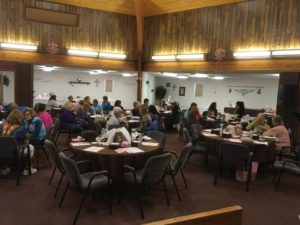
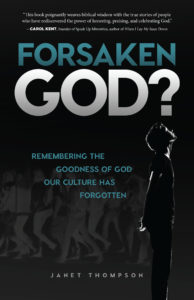








 __
__
